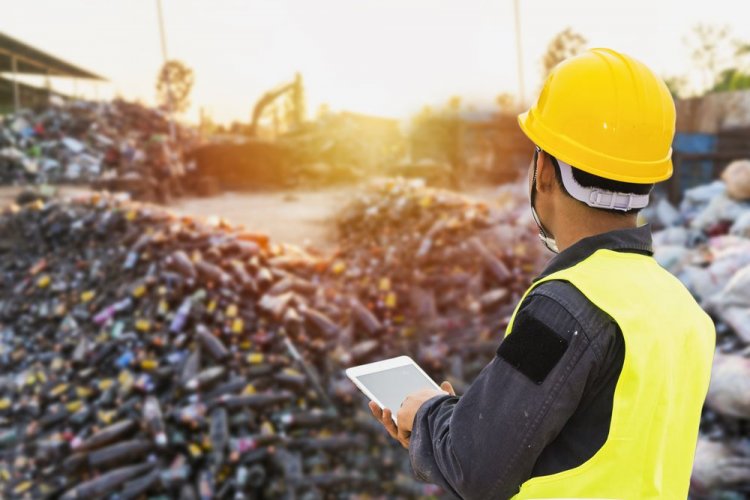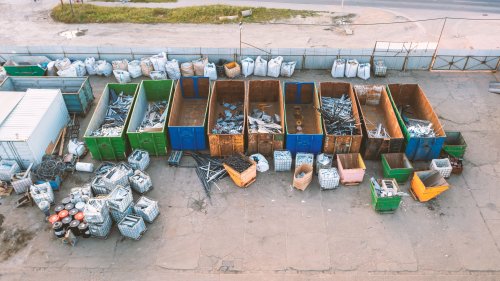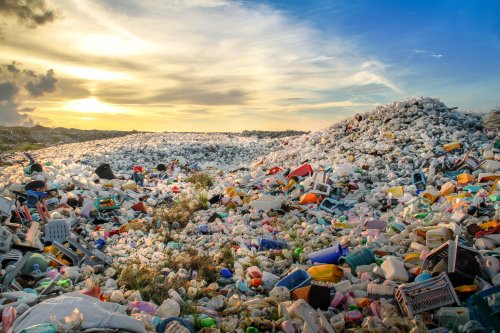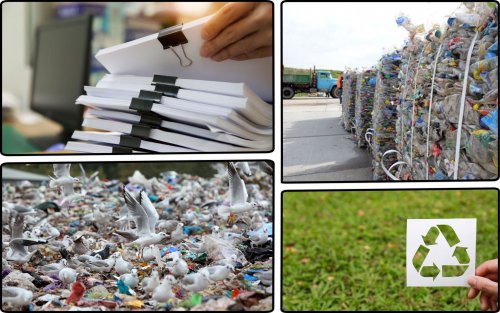The European Business Association (EBA) noted the importance of taking into account in the draft law No. 2207-1-d "On Waste Management" a number of the association's proposals regarding the regulation of industrial waste.
Your comments and suggestions EBA announced on the eve of the consideration of the draft law №2207-1-d by the Verkhovna Rada Ecocommittee.
It is noted that the association conceptually supports the need to adopt the document as a framework for launching waste management reform. Thus, businesses have been working for a long time to develop and adopt a framework law on waste management.
“This is a prerequisite for the creation and implementation of sectoral draft laws on waste management. This includes packaging waste and that is extremely important for business,” said Victoria Kulikova, EBA Regulatory Committee Manager.
The EBA proposals cover the following:
First, extractive industry waste should by default be regulated by a framework draft law. Although Directive 2008/98/EC on waste management that is implemented by draft law №2207-1-d, does not apply to extractive industry waste and refers to a separate Directive 2006/21/EC on the management of extractive industry waste.
Secondly, the draft law does not take into account the specificity of storing industrial waste. Although, the document sets general terms for both domestic and other types of waste. Meanwhile, the reuse of industrial waste as raw materials in Ukraine has only kicked off and it does not rapidly solve the issue of their further utilization. Moreover, Directive 1999/31/EC on waste disposal provides the possibility of releasing inert (safe) waste landfills from the obligation to provide post-operational care for 30 years.
Thirdly, incentives for the development of a circular economy, particularly, the use of secondary raw materials (metallurgical slags, ash, slag products, etc) in the construction and cement industry are not reflected in the text of the draft law. In the EU, their level of use reaches 90% and 45%, while in Ukraine – 45% and 8% respectively. This may be, for example, tax incentives for enterprises that use secondary raw materials and waste in their planned activities. The benefits for the environment from the use of industrial waste are more than obvious. For example, CO2 emissions can be reduced by avoiding extraction, fuel consumption, preparation, and drying of natural materials. In general, the use of secondary raw materials is much cheaper and allows one to spend more on environmental measures and the ecomodernization of companies.
Fourthly, by-products of ferrous metals production (slag, slime, dross, scrap, etc.), if they comply with established requirements, are also not excluded from the regulation of draft law №2207-1-d, although the legislation of industrialized EU countries, USA, Canada, Japan do not refer to slags from ferrous metallurgy as wastes, but rather to the industrial products along with natural materials. At the same time, the draft law does not take into account the need to recognize them as products and not wastes.
Fifth, given the effective martial law, the critical state of companies, and the significant regulatory changes introduced by draft law №2207-1-d, it is advisable to extend the deadline for enacting this law. This will allow industrial enterprises to restore their technological and financial condition, and the authorities to prepare the relevant bylaws in a timely and high-quality manner and implement institutional changes.
Olha Boiko, EBA Industrial Ecology, and Sustainable Development Committee Coordinator, noted that draft law #2207-1-d is nearly the most expected environmental initiative for Ukrainians because it should lay the foundation for a comprehensive reform of waste management – both domestic and industrial – taking into account European principles.
"In general, business does not mind that one document would regulate different types of waste. Also, after numerous revisions of the document we see that the provisions of different EU Directives are put into a single draft law, and even with a rather selective approach to implementation that may cause difficulties in industrial waste management. This should be corrected - and the business has provided its suggestions above," Boyko said.
Moreover, she added, it should be remembered that in Ukraine, household waste, which is the focus of the draft law to a greater extent, accounts for no more than 4% of the total. The remaining 96% is an industrial waste of various types, which through incentive mechanisms can be a significant advantage for Ukraine on the way to decarbonizing the economy and post-war recovery.
"Excessive regulation, fiscal methods, and lack of economic incentives for the development of industrial waste recycling in addition to ruined logistics, loss of markets, blocked ports, lack of resources, and occupied or destroyed facilities, can have a significant negative impact on the environmental future of the country," the expert concluded.
Before EcoPolitics reported that the Global Compact Network in Ukraine called on the Verkhovna Rada to implement two European integration commitments: Completely ban the use of asbestos and adopt bill No. 2207-1D "On Waste Management".





